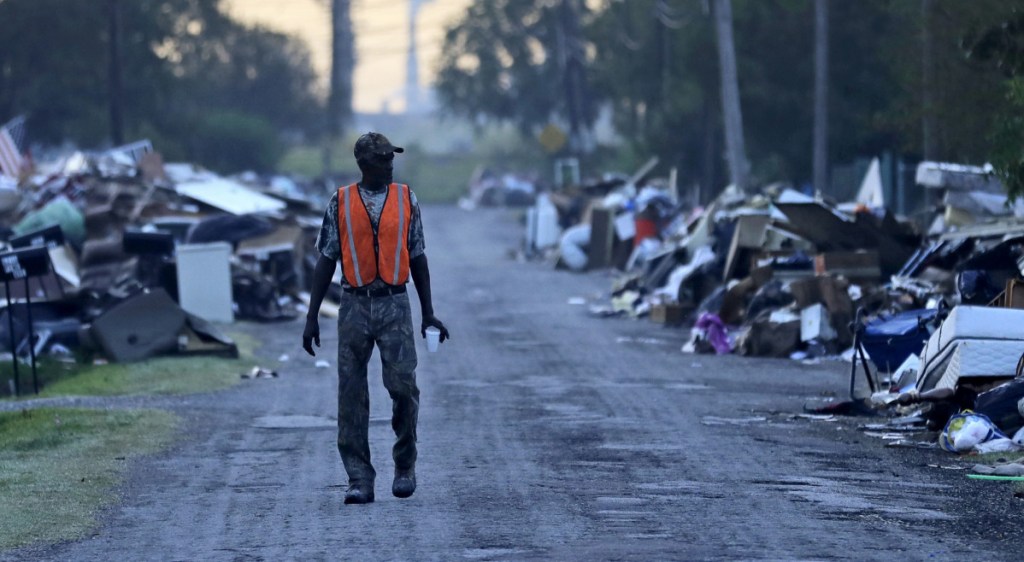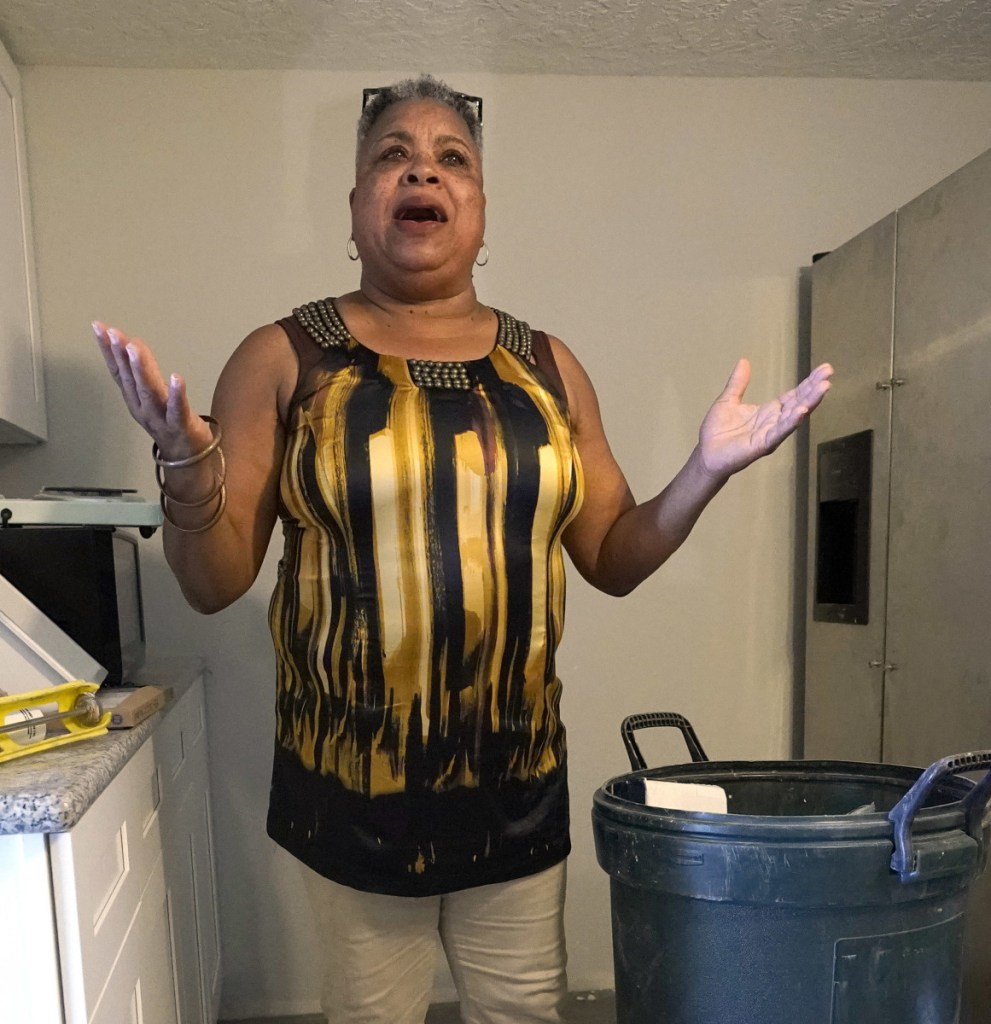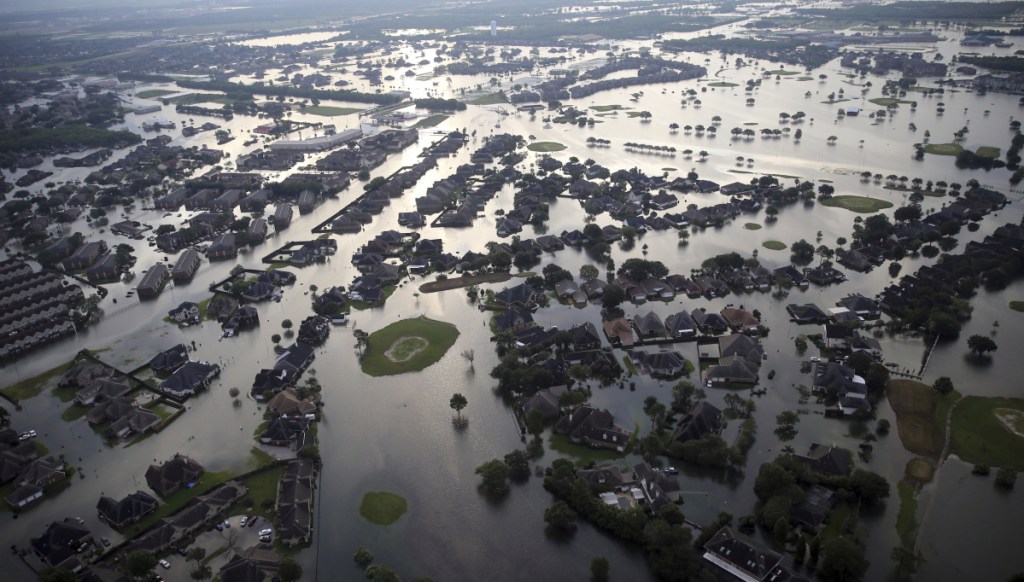HOUSTON — Shirley Paley’s life before Hurricane Harvey was already a struggle: The 61-year-old former postal worker was raising her 17-year-old autistic grandson while dealing with a workplace injury that left her legally blind, on disability and in need of three cornea transplants.
Harvey’s torrential rainfall flooded Paley’s modest home near Kashmere Gardens, one of Houston’s historically African-American neighborhoods, forcing her to live out of her SUV for more than a month and triggering severe depression and anxiety in her 12-year-old granddaughter that led to several suicide attempts. Still unable to move back home and desperate to speed up the repair process, Paley has accumulated thousands of dollars in debt from high-interest payday and car title loans.
“I was trying to keep this straight, strong face. But in the end, I would just die at night,” Paley said.
Harvey has been described as the storm that didn’t discriminate, inflicting an estimated $125 billion in total damage on rich and poor alike. But community leaders say that in the year since the storm came ashore, those in the poorest afflicted areas are having a harder time recovering. Unlike wealthier homeowners who could draw on savings and were more likely to have flood or homeowners insurance, low-income residents have been more reliant on a patchwork of organizations to meet their recovery needs.
“If you were living on the edge and lost everything, you really are back to square one,” said Elena Marks, president and CEO of the Episcopal Health Foundation.
A survey of residents from 24 of Texas’ hardest-hit counties that was conducted by Episcopal Health and the Kaiser Family Foundation in June and July found that 40 percent of Hispanics and 60 percent of African-Americans said they weren’t getting the help they need, including assistance for home repairs and with completing applications for aid.
In the coastal city of Port Arthur, where nearly 30 percent of the roughly 55,000 residents live in poverty, Harvey “pushed some of the folks that were just barely holding on, pushed them over the edge,” said Mayor Derrick Freeman.
Harvey damaged up to 85 percent of the structures in the city, and only 15 to 20 percent of residents had flood insurance.
“Everyone else pretty much is fending for themselves or waiting for the federal government to send some type of disaster relief their way,” Freeman said.
The median income in Kashmere Gardens is between $22,000 and $25,000 a year. The help many have received from the Federal Emergency Management Agency isn’t enough to rebuild their homes.
Before Harvey, “there was a great need here in the community, voids to be filled. So now you are going to put a hurricane on top of this?” said Keith Downey, president of the Kashmere Gardens Super Neighborhood, a local community group.
Neighborhood resident Rosalind Orphey, 67, has spent the past year seeking help to tear down and rebuild her 89-year-old mother’s home. She only got $14,000 from FEMA and at least three nonprofits have told Orphey that the cost of tearing down and rebuilding the home is too high for them.
“We’ve been productive members of the community all our lives,” Orphey said.
Houston Mayor Sylvester Turner said providing housing for struggling residents remains one of his key concerns.
The city is set to receive $1.1 billion in Community Development Block Grant, or CDBG, funding from the federal government for housing needs. Under federal guidelines, 70 percent of CDBG funds must be used for projects that benefit low- and moderate-income individuals.
But Houston likely won’t get that funding until the fall. And the $1.1 billion won’t be enough, Turner said.
Officials and community advocates say addressing affordable housing needs also includes helping renters, many of whom remain in mold-infested housing complexes.
“Even if somebody were to say, ‘I’m going to move out of this hell hole of an apartment after Harvey,’ they don’t have any place to go,” said Ed Emmett, the top elected official in Harris County, where Houston is located.
Send questions/comments to the editors.





Success. Please wait for the page to reload. If the page does not reload within 5 seconds, please refresh the page.
Enter your email and password to access comments.
Hi, to comment on stories you must . This profile is in addition to your subscription and website login.
Already have a commenting profile? .
Invalid username/password.
Please check your email to confirm and complete your registration.
Only subscribers are eligible to post comments. Please subscribe or login first for digital access. Here’s why.
Use the form below to reset your password. When you've submitted your account email, we will send an email with a reset code.